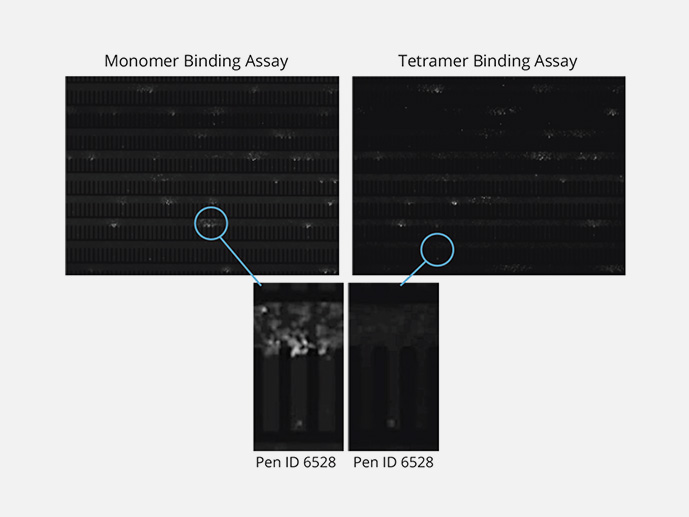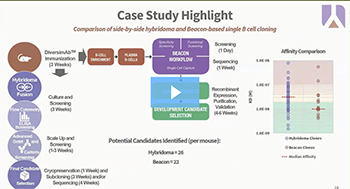Abveris on Antibody Discovery
Rapid End-to-End Antibody Discovery

Abveris is an antibody discovery partner with a focus on challenging therapeutic targets. They provide comprehensive gene-to-antibody discovery services by applying advanced immunization methods combined with B cell screening and hybridoma-based antibody discovery technologies. In order to reduce their timelines and discover antibodies against difficult targets, Abveris adopted the Beacon® optofluidic system.
— Colby A. Souders, Chief Scientific Officer, Abveris
In the webinar “Accelerating Antibody Discovery in the Modern Therapeutic Landscape”, Colby explains how the Bruker Cellular Analysis Platform enables a function-forward approach in which multiple assays are performed for early down-selection of lead antibody candidates.
In the webinar, he highlights the various assays Abveris runs on the Beacon platform to measure single cell secretion and identify antibodies that target both soluble and cell surface membrane antigens. As an example, the figure below depicts an assay to identify anti-idiotypic antibodies that block binding to the receptor ligand.

Abveris scientists used the Opto™ Plasma B Discovery workflow on the Beacon system to look for antibody candidates with exquisite specificity to the target antigen over homologous non-native off-target proteins.
Previous attempts using phage display resulted in inadequate candidates with either poor specificity or poor affinity. The Abveris team was able to screen a highly diverse plasma B cell repertoire using their proprietary genetically-engineered hyperimmune mouse model, the DiversimAb™ Platform, to identify a rare antibody without any off-target cross-reactivity. The ability to perform sequential assays on the same cells allowed them to identify rare, highly specific antibodies and export cells for sequencing and further analysis. For more detail on how Abveris is selecting lead antibody candidates on the Beacon system, you can also read our application note.
Identification of rare antibodies with specificity to the monomeric form of a serum protein over its completely-homologous tetrameric form. Single plasma B cells were screened to identify candidates that recognized the target monomer without cross-reactivity to the completely homologous tetramer.


